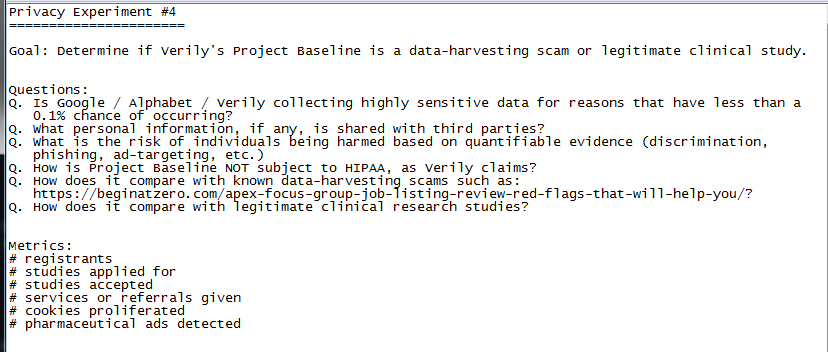
Six Days After Launch
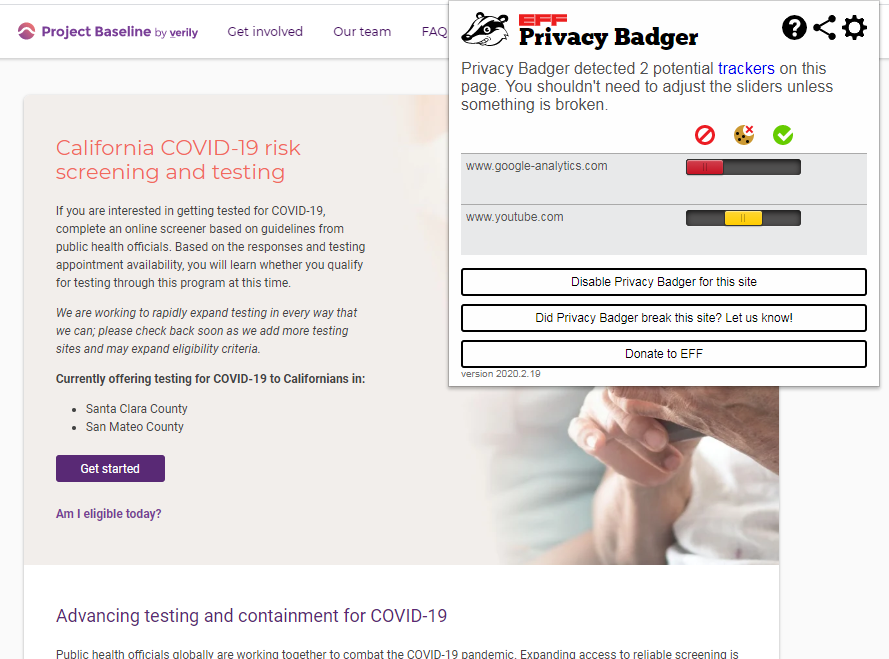
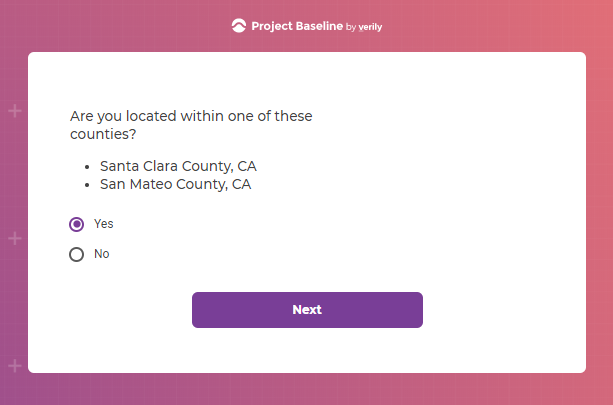
The criteria for eligibility has changed from:
Anyone within 50 miles of Santa Clara or San Mateo Counties
to:
Californians residing in Santa Clara or San Mateo Counties
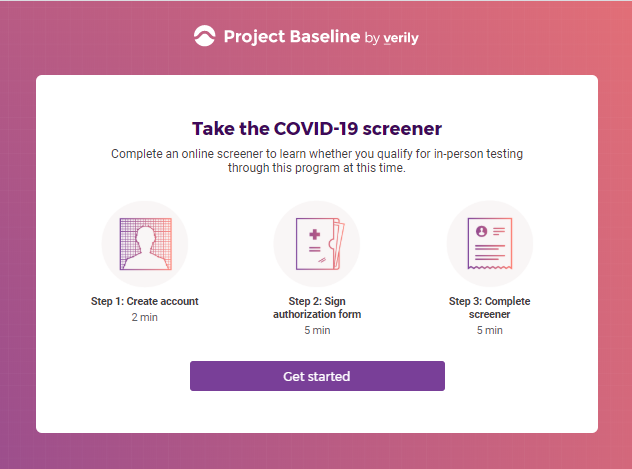
Although I created an account previously, there is no option presented to log in to an existing account.
This implies no linkage between the COVID-19 "service" and GMail or Project Baseline accounts.
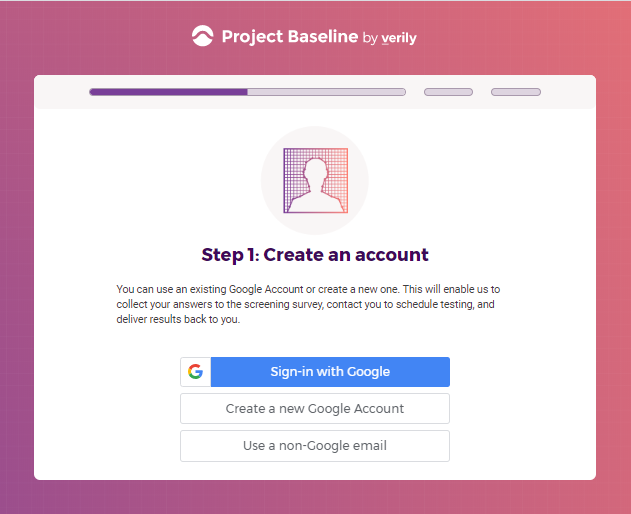
Now I am presented with an option to log in to my existing account.
But it routes me to my Project Baseline Welcome Page, with no opportunity to find out if I am qualified for the COVID-19 testing.
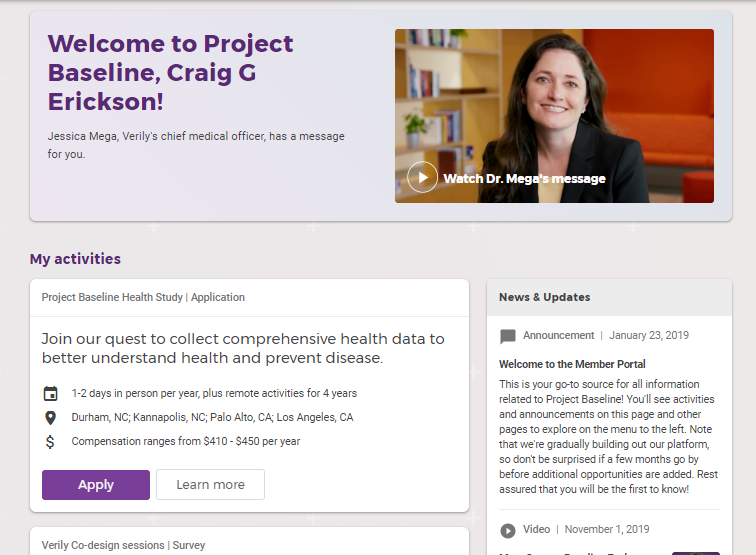
This implies that having a GMail account discriminates me from getting tested for COVID-19.
But we need to test this assumption further:
It says on this very page that "you can rest assured you will be the first to know",
although I may have to wait "a few months to go by" before this assumption can be tested.
Other possibilities include:
my location is being tracked
I am a known resident of Alameda County according to my own Project Baseline profile
Ideology, Verily's third-party vendor who authenticates participant's identity is screening me out, by design.
I wanted to check out Verily's Advisory Board, so I went to their blog...
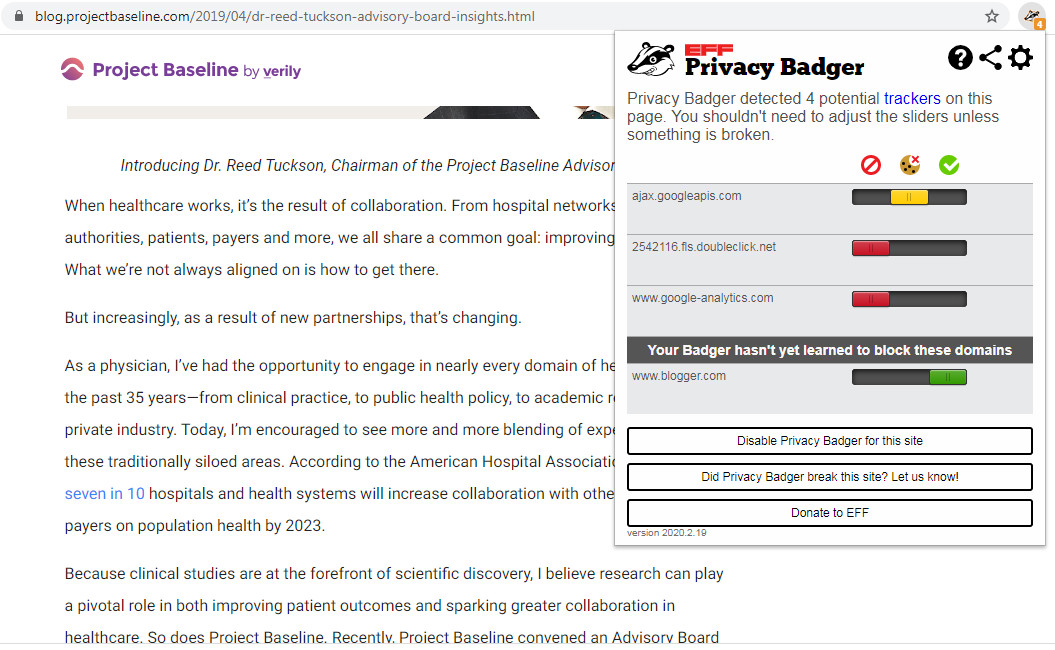
Another reason why I wanted to check out the blog was because I recalled from the first iteration...

...that I could write a "guest blog" (although I consented to keep my participation secret),
which would certainly expose my identity,
and "interacting with other members of Project Baseline" and
"sharing my experience as a Face of Baseline"
smacks of facebook (which is listed as a sponsor and is tracking my Project Baseline activity through third-party tracking cookies).
Question: Can I really be an "Ambassador"? Or "only shills need apply"?
Q. Is Verily exploiting people desperate for income during the COVID-19 crisis,
by offering monetary incentives to participate in their studies?
Q. What is the probability of actually being selected and paid for participation,
after Verily harvests highly sensitive personal information?
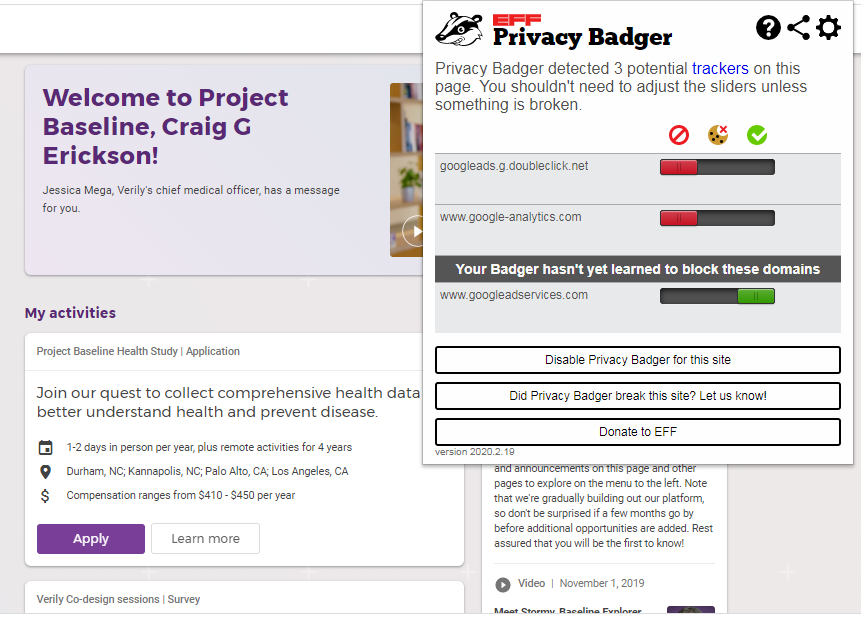
Let's apply for yet another study...
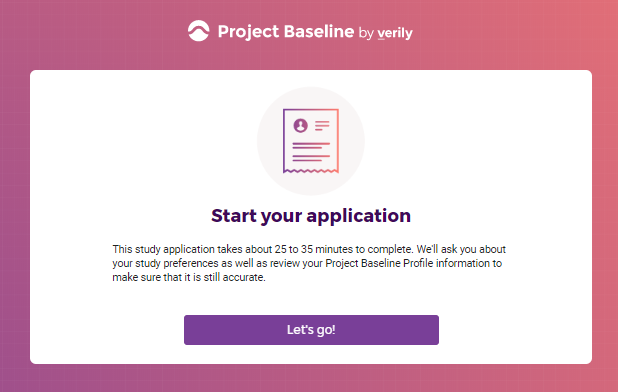
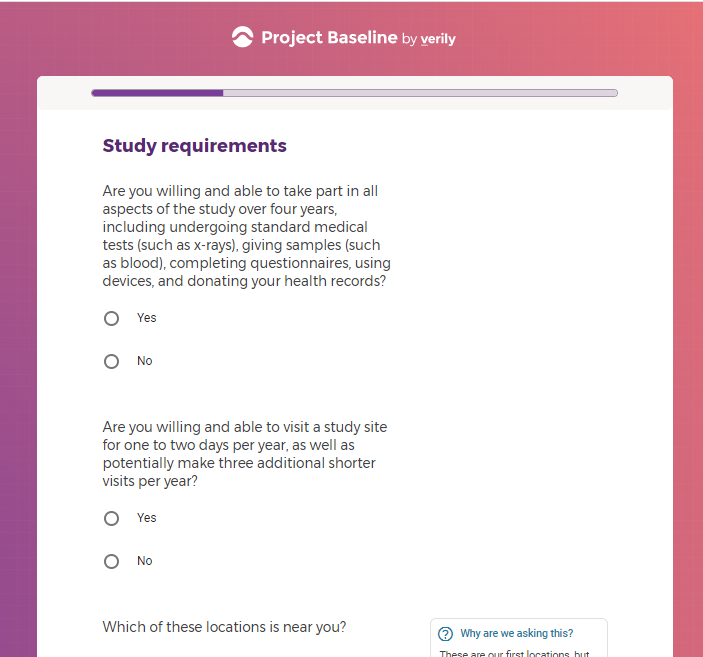
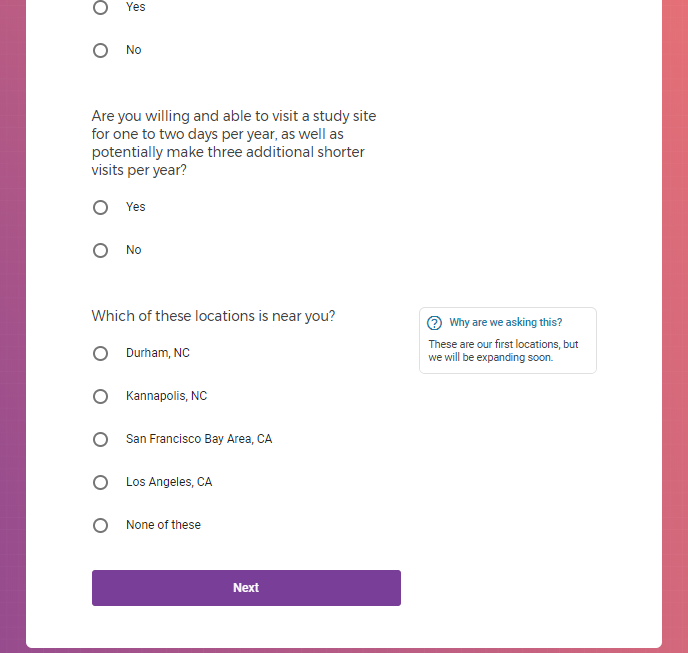
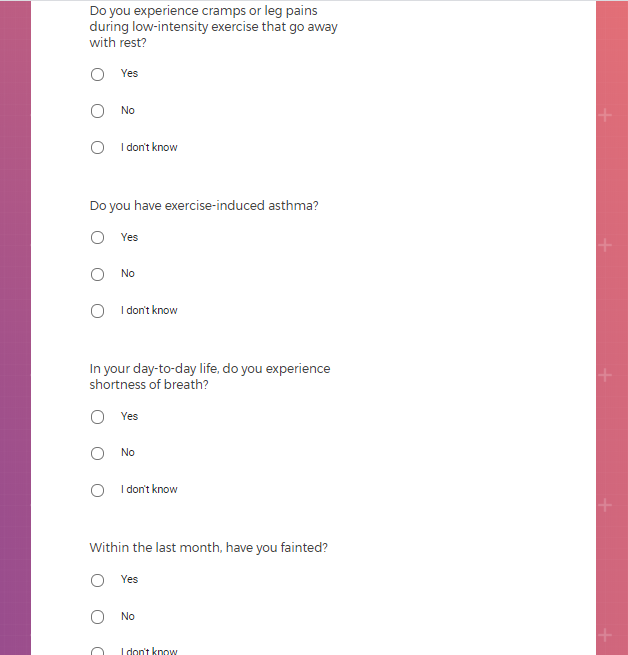
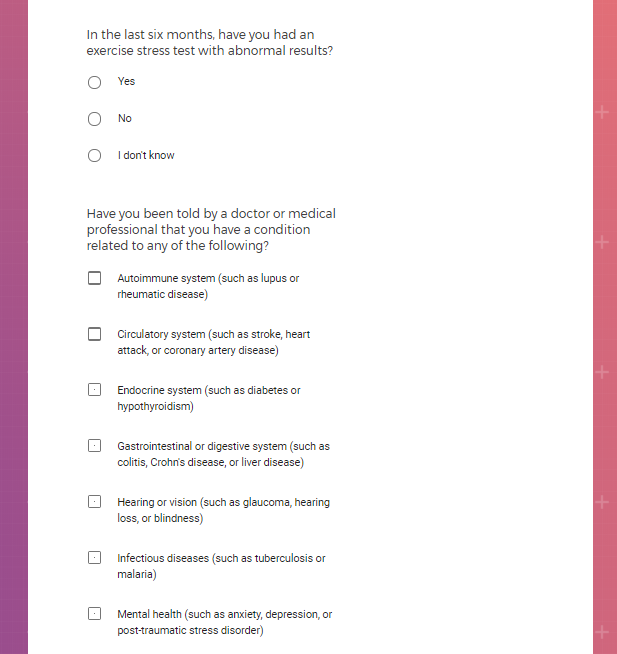
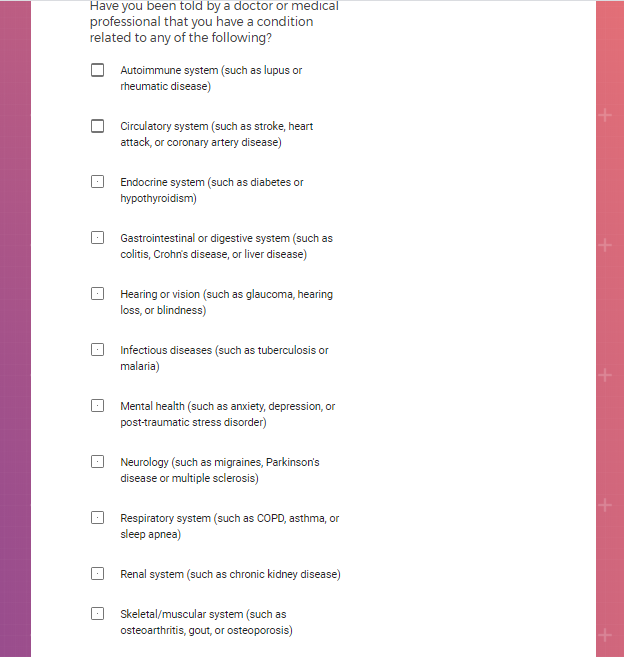
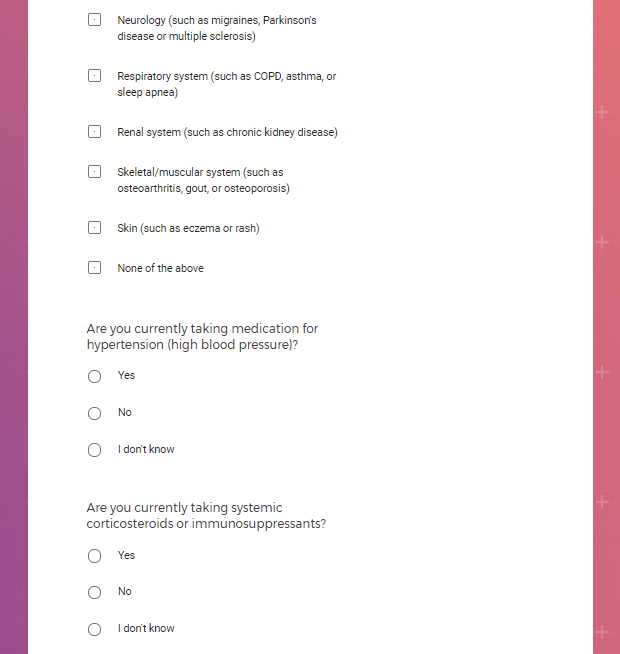
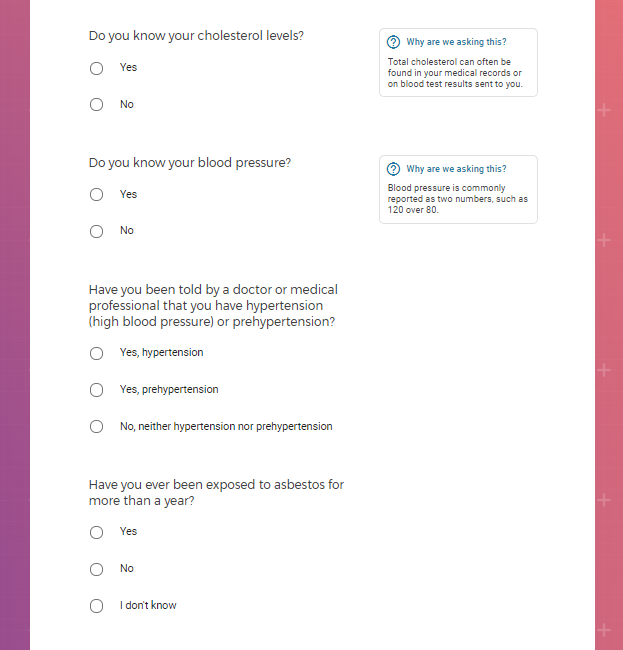
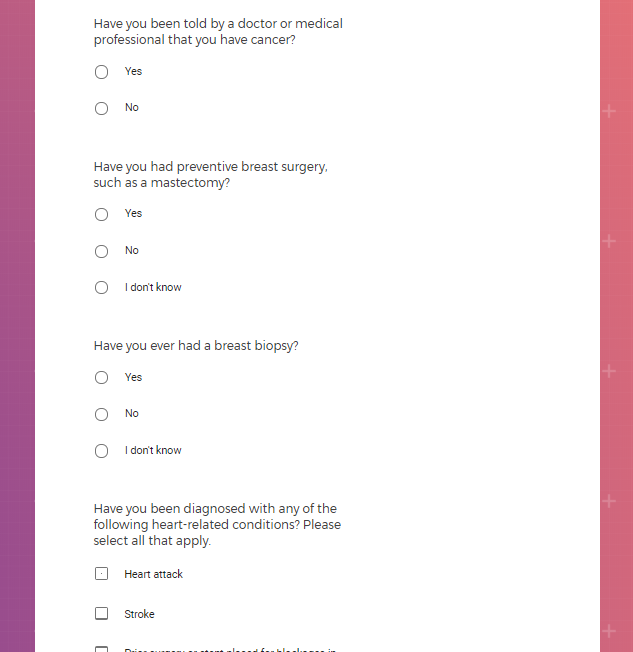
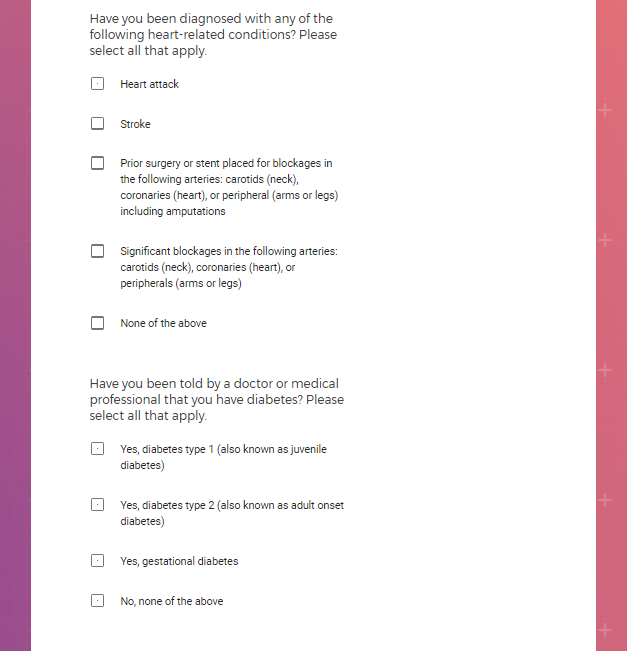
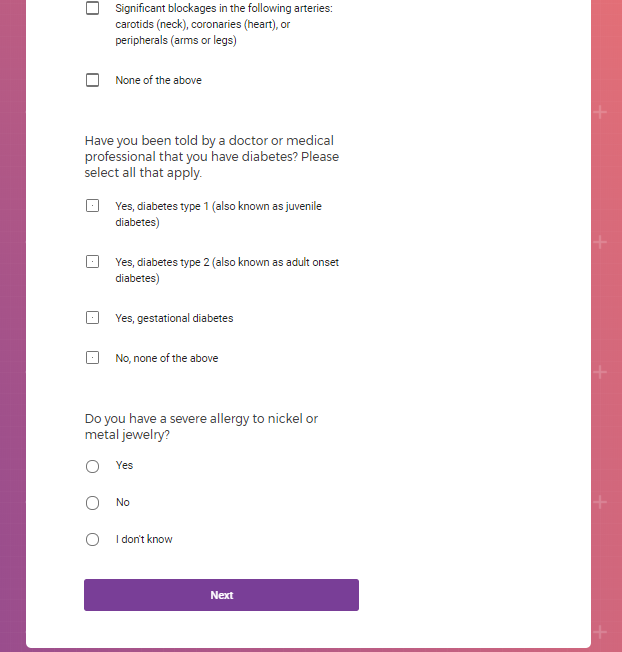
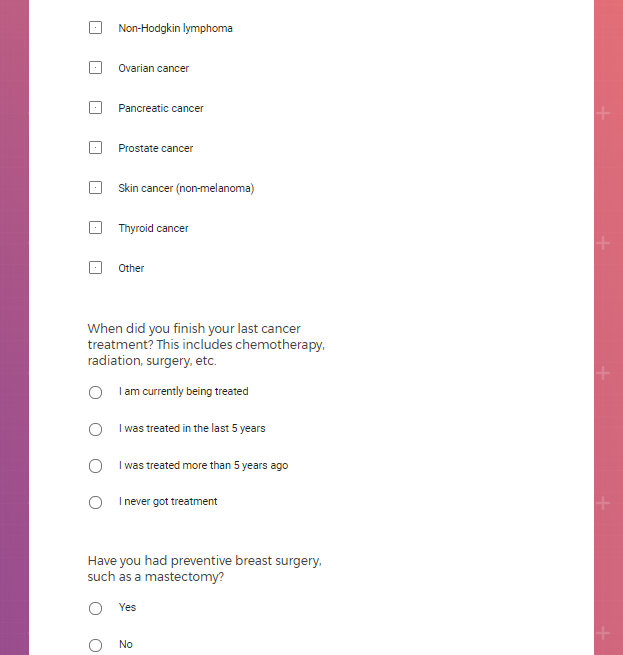
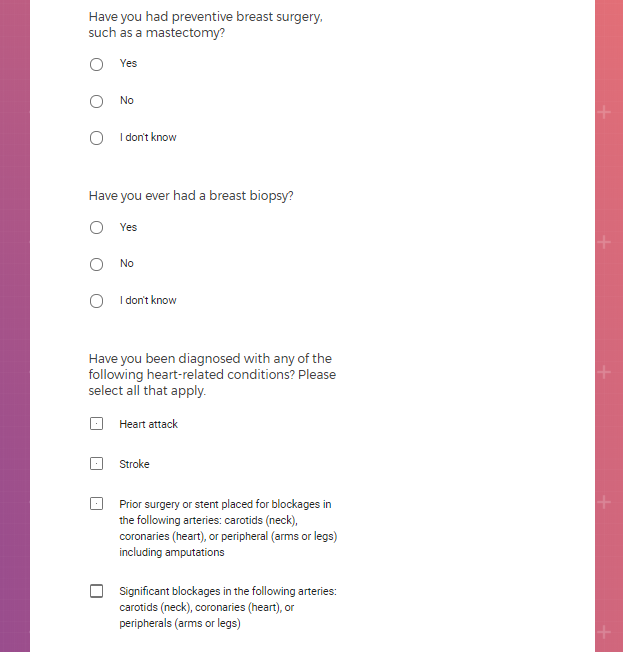
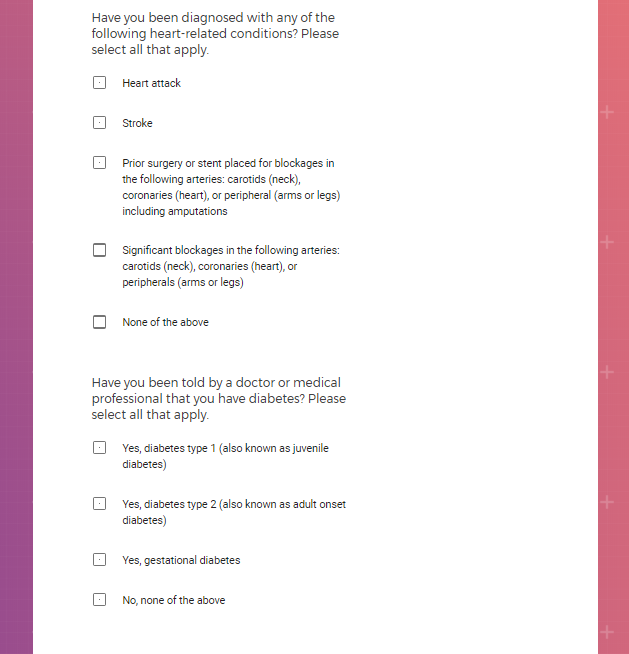
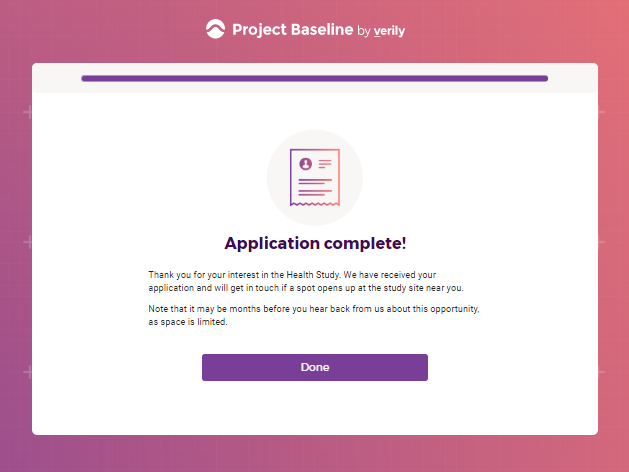
Q. Is Verily exploiting people desperate for income during the COVID-19 crisis,
by offering monetary incentives to participate in their studies?
Q. What is the probability of actually being selected and paid for participation,
after Verily harvests highly sensitive personal information?
Answering these questions requires a crowd-sourced model in which researchers duplicate these tests,
and publish their results.
Due to potential harm to researchers voluntarily submitting their own personal information,
and along with legal liabilities of being sued for violating Verily's Confidentiality clause,
conducting research experiments like these are highly risky and subject to scepticism.
I maintain a copy (screenshots) of all information I submitted.
Because I will not publish this information, my methods and data-collection integrity are not easily verifiable.
Only a third-party attestation from a reputable auditor can compare my records with Verily's records.
Therefore, I am soliciting advice from experts I know, about continuing this research
or disclosing it to my congressional representatives and contacts at the FTC.
My personal motivation is fueled by my strong conviction that privacy matters, transparency matters, and fairness to all parties matters.
What I could gain from this effort, is validation that continuous monitoring through crowdsourcing,
based on transparent testing and evidence-reporting,
is the MOST effective way to evaluate risk, and enforce policies and legal mandates.
Although the "Mood Study" shown in iteration #1 is unrelated to the current COVID-19 crisis, I find it deeply disturbing.
Licensed mental health professionals and advocacy groups providing community services for suicide and domestic abuse
must report some incidents under certain conditions -- if they did not do so, real people can be harmed.
I question whether or not participants of these studies are encouraged to seek and consult professional help.
This is why I am soliciting advise from medical practitioners and lawyers who understand the rules, the risks, and the public records
which are required for oversight of "clinical studies" such as these.